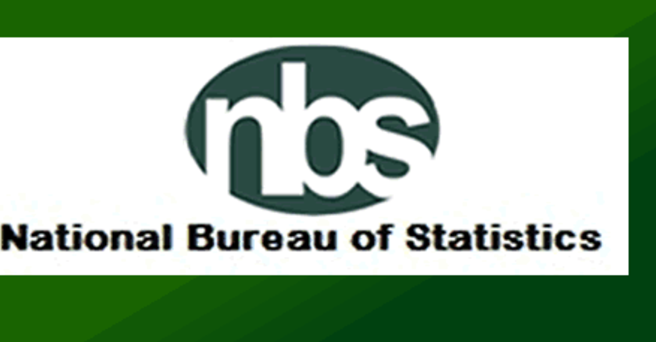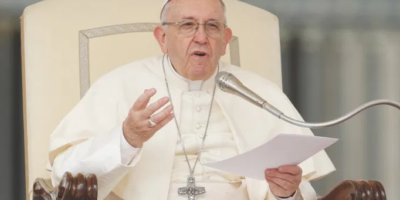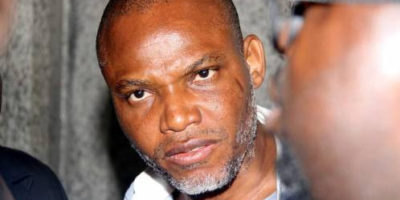NBS: Nigeria’s GDP Rose 3.98% In Q4 2021

The National Bureau of Statistics (NBS) yesterday disclosed that Nigeria’s Gross Domestic Product (GDP) rose by 3.98 per cent in the fourth quarter of 2021, as the value of the nation’s total merchandise trade stood at N11,707.20 billion, 74.71 per cent higher when compared to the value recorded in Q4, 2020.
The report contained in a statement issued by the NBS, presents statistics on Nigeria’s GDP, foreign trade, capital importation, consumer prices index, and social statistics.
According to the report, Nigeria’s GDP grew by 3.98 per cent year-on-year in real terms in the fourth quarter of 2021.
This showed sustained growth for the fifth quarter since the recession witnessed in 2020 when output contracted by -6.10 per cent and -3.62 per cent in Q2 and Q3 of 2020 under the COVID pandemic.
The Q4 2021 growth rate was higher than the 0.11 per cent growth rate recorded in Q4 of 2020 by 3.87 per cent points and lower than 4.03 per cent recorded in Q3 of 2021 by 0.05 per cent points.
Nevertheless, quarter on quarter, real GDP grew at 9.63 per cent in Q4 of 2021 compared to Q3 of 2021, reflecting a higher economic activity than the preceding quarter.
The report said the real growth of the oil sector was 8.06 per cent year-on-year in Q4 of 2021, indicating an increase by 11.71 per cent points relative to the rate recorded in the corresponding quarter of 2020.
It said growth increased by 2.68 per cent points when compared to Q3 of 2021 which was 10.73 per cent.
The report revealed that the non-oil sector grew by 4.73 per cent in real terms during Q4 of 2021.
This rate was higher by 3.05 per cent point compared to the rate recorded same quarter of 2020 and 0.71 per cent point lower than the third quarter of 2021.
The report showed that services recorded the highest year-on-year growth rate of 5.58 per cent in the fourth quarter of 2021, followed by agriculture with 3.58 per cent, while industry had -0.05 per cent.
On the contribution to total GDP, the NBS said agriculture contributed the most to GDP with 26.84 per cent, followed by Trade with 15.66 per cent, and Information and Communication with 15.21 per cent.
The activity that contributed the least was Administrative and Support Services with 0.02 per cent.
This is followed by Water Supply, Sewerage, Waste Management and Remediation with 0.16 per cent and Arts, Entertainment and Recreation with 0.20 per cent.
Data on foreign trade revealed that in Q4 of 2021, Nigeria’s Total Merchandise Trade stood at N11,707.20 billion, 74.71 per cent higher when compared to the value recorded in Q4, 2020.
It said export trade in Q4 of 2021 stood at N5.77 Trillion, indicating an increase of 12.27 per cent over the preceding quarter, and the value in 2021 also grew by 80.52 per cent over the corresponding period of 2020.
On the other hand, total imports stood at N5.94 trillion in Q4, 2021, indicating an increase of 11.33 per cent over the preceding quarter and 69.41 per cent over the corresponding period of 2020.
Export trade by region in Q4 of 2021 shows that Nigeria exported most products to Europe with goods valued at N2,408.39 billion or 41.76 per cent of total exports.
Asia was N1,875.56 billion, or 32.52 per cent of total exports and Africa was N773.83 billion or 13.42 per cent of total exports, of which N250.52 billion worth of goods were exported to ECOWAS countries.
Exports to America amounted to N702.74 billion or 12.19 per cent of total exports.
The report revealed that during Q4 of 2021, Nigeria imported goods mainly from Asia, valued at N2,743.76 billion or 46.19 per cent of total imports.
This was followed by Europe at N2,422.41 billion or 40.78 per cent, America at N571.70 billion or 9.62 per cent, Africa at N161.47 billion or 2.72 per cent, and Oceania at N41.24 billion or 0.69 per cent.
It said that imports from ECOWAS countries accounted for N35.76 billion, or 0.6 per cent of the value of total imports.

Justin Nwosu is the founder and publisher of Flavision. His core interest is in writing unbiased news about Nigeria in particular and Africa in general. He’s a strong adherent of investigative journalism, with a bent on exposing corruption, abuse of power and societal ills.













